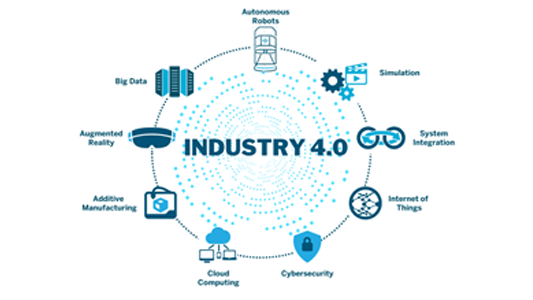The global Industry 4.0 Industry is experiencing substantial growth, driven by advancements in technology and the increasing adoption of smart manufacturing solutions. According to a recent report by (TMR), the Industry 4.0 Industry is anticipated to register a remarkable compound annual growth rate (CAGR) of 26.7% during the forecast period. This article delves into the key factors shaping this dynamic Industry, the growth drivers, regional analysis, and competitive landscape, providing a comprehensive view of the Industry 4.0 Industry.
Need for connectedness and access to real-time data by partners, employees, and processes in the manufacturing sector is a common factor driving the Industry 4.0 Industry growth. Industry 4.0 assists various businesses to optimize and operate their supply chains and production operations. These aspects present an array of opportunities for the Industry 4.0 Industry players.
Key Industry Insights
Industry 4.0 encompasses a range of industrial solutions aimed at improving the safety, quality, and efficiency of production processes. These solutions include:
- Connected Production Assets: Ensuring seamless communication and efficiency.
- Cyber-Physical Systems: Enhancing automated operations.
- Next-Generation Automation Equipment: Aiding smart energy consumption, remote monitoring, and real-time supply chain optimization.
The increasing awareness of the benefits of Industry 4.0 solutions, such as cost-efficiency and advanced predictive maintenance, is significantly contributing to Industry expansion. Companies are integrating these technologies into existing infrastructures to reduce costs while optimizing production operations.
What are the benefits of Industry 4.0?
The benefits of Industry 4.0 include improved productivity and efficiency, better flexibility and agility, and increased profitability. Some key benefits of Industry 4.0 companies experiencing are:
- Improved Productivity and Efficiency: Businesses are making data-driven decisions across their operations, improving forecast accuracy, supporting on-time delivery, and building profit-optimized plans.
- Flexibility and Agility: It’s easier to scale production up or down in a Smart Factory as well as introducing new products to the production line.
- Better Customer Experience: The customer experience will enhance with automated track and trace capabilities.
- Innovation opportunities: Better knowledge of the manufacturing process leads to opportunities to innovate.
- Green and Sustainable Solutions: Less resources, material, and product waste will both lead to an increased probability and a more sustainable solution.
Key Growth Drivers
Several factors are driving the growth of the Industry 4.0 Industry:
- Improved Efficiency and Reduced Costs: Enterprises, particularly in the automotive and manufacturing sectors, are leveraging Industry 4.0 solutions to optimize production and cut costs.
- Digitalization and Smart Manufacturing: There is a growing trend towards adopting digital and smart factory solutions, which is boosting demand for Industry 4.0 technologies.
- Advanced Production Monitoring: Sophisticated tools such as predictive maintenance, mobile workforce management, and real-time supply chain monitoring are revolutionizing production processes.
Competitive Landscape
The Industry 4.0 Industry features a highly competitive environment, with companies employing strategies such as partnerships, acquisitions, and innovative technology integration to strengthen their positions. Key players include:
- Alphabet Inc.
- ABB Ltd.
- Cisco Systems, Inc.
- FANUC Corporation
- Siemens AG
- Schneider Electric SE
These players are focused on offering cost-efficient and high-quality Industry 4.0 solutions to a diverse customer base. Investments in R&D and collaborations are further enhancing their product offerings.
Challenges and Future Outlook
While the Industry 4.0 Industry holds immense potential, challenges such as high initial implementation costs and the need for skilled professionals may hinder rapid adoption. However, as awareness grows and technology becomes more accessible, these barriers are expected to diminish. The Industry 4.0 Industry is poised for significant expansion, driven by increasing digitalization and the demand for smart manufacturing solutions across various industries.












